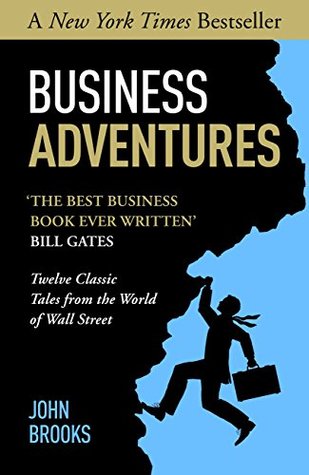More on this book
Community
Kindle Notes & Highlights
by
John Brooks
Read between
June 28 - July 8, 2018
1611, of the world’s first important stock exchange—a roofless courtyard in Amsterdam
One of de la Vega’s observations about the Amsterdam traders was that they were “very clever in inventing reasons” for a sudden rise or fall in stock prices,
Evidence that people are selling stocks at a time when they ought to be eating lunch is always regarded as a serious matter.
A margin call is a demand for additional collateral from a customer who has borrowed money from his broker to buy stocks and whose stocks are now worth barely enough to cover the loan. If a customer is unwilling or unable to meet a margin call with more collateral, his broker will sell the margined stock as soon as possible; such sales may depress other stocks further, leading to more margin calls, leading to more stock sales, and so on down into the pit.
“Never give anyone the advice to buy or sell shares, because, where perspicacity is weakened, the most benevolent piece of advice can turn out badly.”
The Edsel, these people argued, was designed, named, advertised, and promoted with a slavish adherence to the results of public-opinion polls and of their younger cousin, motivational research, and they concluded that when the public is wooed in an excessively calculated manner, it tends to turn away in favor of some gruffer but more spontaneously attentive suitor.
By 1911, income taxes also existed in Austria, Spain, Belgium, Sweden, Norway, Denmark, Switzerland, Holland, Greece, Luxembourg, Finland, Australia, New Zealand, Japan, and India.
Several countries, including France and Germany, have value-added taxes, though as supplements rather than alternatives to income taxes,
from the late sixteenth century until Victorian times “copy” and “counterfeit” were nearly synonymous.
“There is no possible protection from technology except by technology,”
“When you create a new environment with one phase of technology, you have to create an anti-environment with the next.”
The term “pound sterling” is believed to have originated well before the Norman Conquest, when the Saxon kings issued silver pennies—called “sterlings” or “starlings” because they sometimes had stars inscribed on them—of which two hundred and forty equalled one pound of pure silver. (The shilling, representing twelve sterlings, or one-twentieth of a pound, did not appear on the scene until after the Conquest.)
By the end of the seventeenth century, when the Bank of England was founded to handle the government’s finances, paper money was beginning to be trusted for general use, and it had come to be backed by gold as well as silver.


